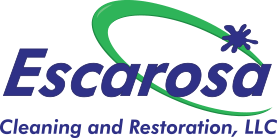Get Rid of Mold, The Uninvited Guest in Your Pensacola FL Home

Discovering mold in your home or office can seem like a nightmare right out of a horror movie: an unseen intruder sneaks in and slowly grows in the shadows and hidden recesses of your home. Spreading insidiously, mold can eat away at the place that is supposed to be your refuge and safe harbor from the dangers of the outside world. If left unchecked, it can affect your family’s health and destroy a good portion of the investment you have made in your home or business.
To understand how mold can have such profound impacts, it is helpful to understand what mold is and what conditions allow it to grow out of control.
What is Mold?
There are many different types of mold, but all of them are microbes that live by causing the biodegradation of organic materials. In their natural habitat, say the leaf-strewn floor of a wooded area, molds serve as part of nature’s clean up crew. By breaking down dead wood and fallen leaves, molds and other fungi help to return vital nutrients to the soil. This keeps our forests healthy and vibrant, clearing out the old to make room for the new.
Problems arise, however, when mold finds a foothold in the protected environment of your home or business. With no predators or competition for resources and artificially stable conditions, mold can grow unchecked indoors and wreak havoc in your home or office.
How Does Mold Grow?
There are three basic elements that make the perfect environment for mold to grow: dampness, darkness and warmth. When water from a plumbing issue or structural leak enters the envelope of your home, the resulting damp wood and drywall become a perfect buffet for these fungal intruders. Our heaters and air conditioners keep the indoor temperature in a comfortable range for us, which also happens to be just right for mold growth. Lastly, the hidden areas inside walls and behind household appliances provide the cover mold needs to grow into large, destructive colonies.
The dark stains and slimy marks made by molds are disturbing, but it is the tiny spores they use to reproduce that may pose the greatest danger to you and your family. When accidentally disturbed, a mold colony can release millions of these spores into your HVAC system and spread throughout your home. For sensitive individuals, mold spores can trigger asthma attacks and allergic reactions when inhaled. There are even reports of serious physical and neurological effects experienced by people that have been exposed to the toxins produced by certain molds.
When a mold problem is developing, it can often be first detected by homeowners through the characteristic smell. Described as “musty” or “damp,” your nose is capable of detecting these odors often before the mold is visible. This is a sure sign that you have an issue with moisture in your home. Slow drips from plumbing or fixtures, leaky roofs or windows, or a consistent build up of humidity from improperly vented bathrooms or heating equipment can all provide the necessary environment in which mold thrives.
What to Do if You Think You Have a Mold Issue
Should you detect any of these warning signs, we recommend you reach out to the trained professionals at Escarosa Cleaning and Restoration to tackle the problem. We have the equipment and know-how to properly treat the issue in a safe, effective manner. Without professional training and protective measures in place, many homeowners inadvertently make matters worse by opening hidden areas and spreading spores throughout their homes.
Escarosa Cleaning and Restoration is certified in mold remediation and insured to safely perform mold removal services throughout the state of Florida. Our team can identify the full scope of the problem and follow established sanitation and remediation protocols to return your home and indoor air quality to a safe, clean state.
Give us a call at (850) 432-6060 today, and experience the peace of mind that comes from dealing with an experienced, local company that has a proven track record of helping Gulf Coast residents in their time of need.












